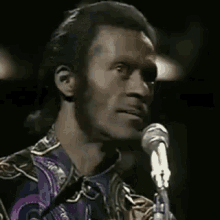It’s always “everybody is equal in Islam” but SOMEHOW, SOMEWAY.. Black ppl ALWAYS are the lowest social hierarchy when they’re in community with those of said Abrahamic faiths playing colorblind righteous.
What Abrahamic faith practitioners do is preach
“religious All Lives Matter”
While actively playing blind to the inherent anti-African nature





Fools are always coming in writing about Islam and slavery, but for some reason those same fools never write about the Pope and how he sanctioned Europeans to invade the lands of the Africans and to enslave them and to take their lands and goods:
Pope Nicolas V and the Portuguese Slave Trade
"...during the second half of the fifteenth century, once Portuguese mariners began to return to Iberia with captives acquired in West Africa and West Central Africa. Notably, the treatment of “black Gentiles” was addressed in 1452 and 1455, when Pope Nicolas V issued a series of papal bulls that granted Portugal the right to enslave sub-Saharan Africans. Church leaders argued that slavery served as a natural deterrent and Christianizing influence to “barbarous” behavior among pagans. Using this logic, the Pope issued a mandate to the Portuguese king, Alfonso V, and instructed him:
. . . to invade, search out, capture, vanquish, and subdue all Saracens and pagans whatsoever …[and] to reduce their persons to perpetual slavery, and to apply and appropriate to himself and his successors the kingdoms, dukedoms, counties, principalities, dominions, possessions, and goods, and to convert them to his and their use and profit . . .
Though the papal bull mentions “invading” and “vanquishing” African peoples, no European nation was willing or able to put an army in western Africa until the Portuguese colonization of Angola more than a century later (and even then, Portuguese forces received extensive aid from armies of Imbangala or “Jaga” mercenaries). Early raids such as the one made by Gonçalvez and Tristão in 1441 were unusual, and may have only been possible because the Portuguese had never previously raided south of Cape Bojador. Portuguese mariners soon learned that inhabitants along the Upper Guinea coast were more than capable of defending themselves from such incursions. Not long after his 1441 voyage, Tristão and most of his crew were killed off the coast of present-day Senegal.
Prior to the colonization of Angola, Portuguese colonies and commercial hubs in Africa were generally established on islands that had previously been uninhabited. Meanwhile, feitorias on the mainland depended largely on maintaining good relations with local populations. Thus in addition to justifying the enslavement of Muslims and other non-Christian peoples—including an increasingly important population of sub-Saharan Africans and their descendants—within the Iberian world, this legislation essentially authorized Portuguese colonists and merchants overseas to acquire enslaved Africans through commerce, drawing on pre-existing markets and trade routes.
As the 1455 bull indicates, at first the Church officially limited African slave trading to Alfonso of Portugal. Regardless, other European groups soon followed. During the late fifteenth and sixteenth centuries, French and English mariners occasionally attempted to raid or trade with Portuguese settlements and autonomous African communities. During the War of the Castilian Succession (1475-1479), the Spanish faction supporting Isabel—future Queen Isabel of Castile—directly challenged Portuguese claims in western Africa, sending large fleets to raid the Cape Verde Islands and conduct trade near Elmina. Despite Castile’s formal recognition of Portuguese interests in western Africa, stipulated in the treaties of Alcáçovas (1479) and Tordesillas (1494), voyages organized in Andalucia and the Canary Islands continued to visit African ports.
The Papal Bull of 1455 justified the expansion of (black) African slavery within early Iberian colonies, and the acquisition of more African captives and territory, but the same decree also provided a legal framework for sub-Saharan Africans to negotiate with Iberian authorities on equal footing, and to make claims of their own, should they convert to Christianity. Perhaps the best-known example of this form of negotiation is found in the Kingdom of Kongo in West Central Africa. During the late fifteenth and early sixteenth centuries, Kongolese political elites adopted Christianity and sent emissaries to Europe. In the 1520s, Kongo’s Christian ruler used diplomatic pressure based on his religious status to try to limit the Portuguese slave trade from Kongo.


 Hell nah don't disrespect the forefathers like that.
Hell nah don't disrespect the forefathers like that.







